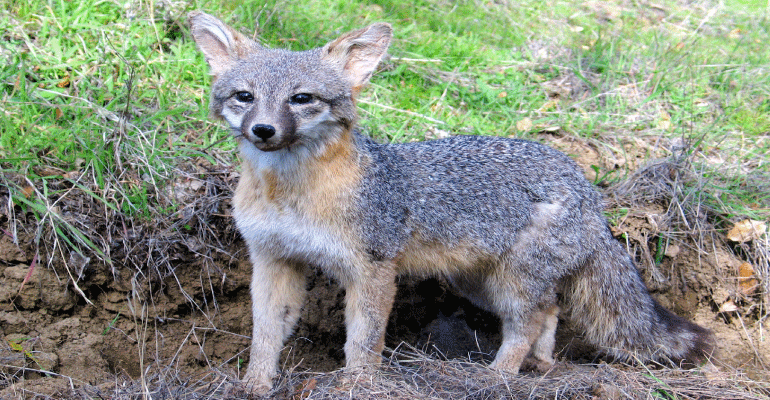
A Vail woman was attacked and then bitten by a fox 11:30 a.m. Wednesday, Jan. 10 on a path along the Pantano Wash in Rancho Del Lago according to a report from Arizona Game and Fish.
The remains of the fox, which drowned in a golf course pond it entered after the attack, were recovered and submitted for rabies testing. The dead fox reportedly was seen in the area earlier in the day acting erratically.
The woman was apparently bitten on the calf when she tried to kick the fox away. Although the wound was superficial, she is being treated for possible exposure to rabies.
“Avoid contact with and don’t approach wildlife that is behaving abnormally or appears to be ill. If you believe that you see a rabid animal, call the Arizona Department of Game and Fish or the Pima County Health Department at immediately,” said Regional Supervisor Raúl Vega of Game and Fish in Tucson. “In addition, avoid touching any dead wildlife that you may find, and keep your pets away from them as well.”
Vega added that pets such as dogs and cats, as well as livestock like horses, should be regularly vaccinated for rabies. In addition, dogs should be on leashes when outdoors, and a veterinarian consulted if any domestic animals are injured by wildlife, he said. Unvaccinated animals exposed to wildlife with rabies must undergo a four month quarantine.
Rabies is a preventable viral disease most often transmitted through the bite of a rabid animal. The rabies virus attacks the central nervous system, causing encephalitis (swelling of the brain.) It is almost always fatal once symptoms appear.
Rabies can be prevented in persons who have come into contact or have been bitten by wild animals through prompt administration of anti-rabies vaccine and rabies immune globulin.
In Arizona, the principal rabies hosts in Arizona are bats, skunks, and foxes. These animals carry their own distinct rabies virus variants or “strains.”
When rabies activity within these animal groups increases, rabies can “spill over” into other mammal species, such as bobcats, coyotes, javelina, cats, dogs, horses, cows, etc. Rabid animals may appear disoriented or intoxicated, salivate heavily or appear thirsty.
Approximately 15 people are exposed to rabid animals in Arizona annually. People who are exposed must receive vaccine and anti-rabies serum treatment to prevent infection. Prevention information is available from the Arizona Department of Health Services.
Contact the Arizona Game and Fish Department by phone, 623.236.7201, or online.
